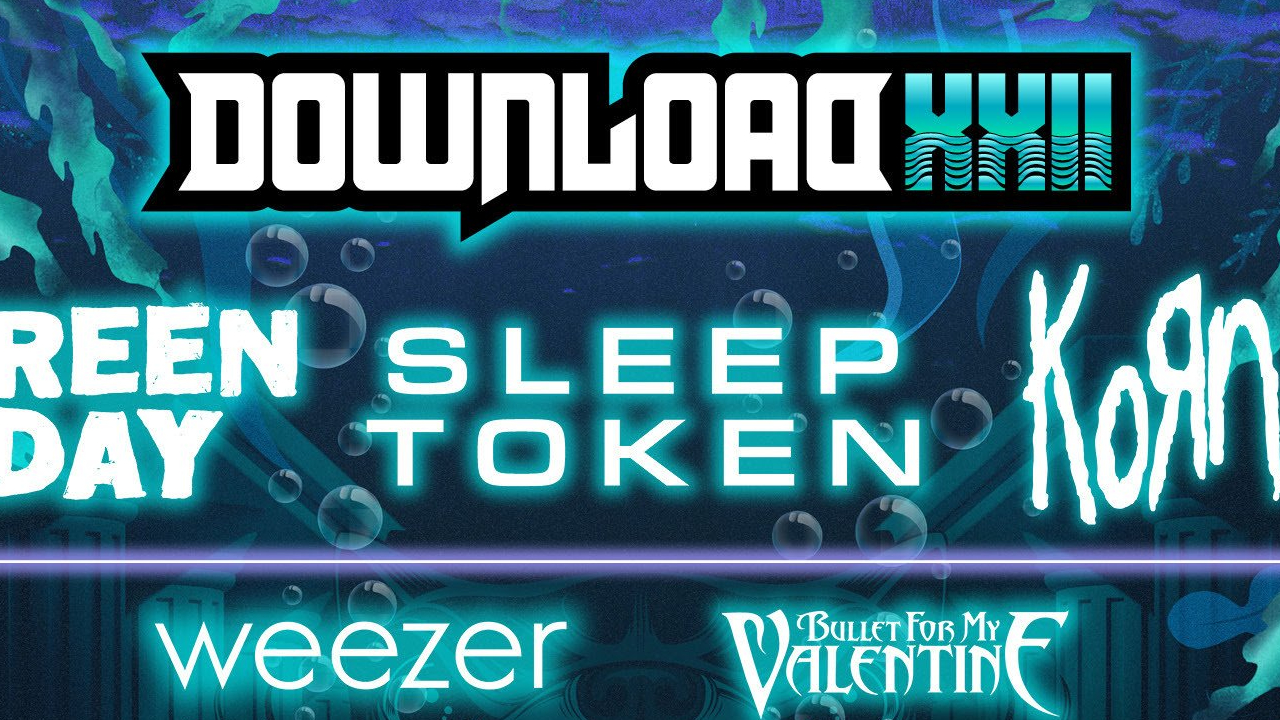
Feature Photo: ReservoirHill aka Hugh Pickens, CC BY-SA 3.0 , via Wikimedia Commons
Born from the swamps and cities of Florida, Blackfoot emerged as one of Southern rock’s most distinctive and powerful voices, carving out a unique niche that combined traditional Southern rock with hard rock and heavy metal influences. Blackfoot is an American Southern rock band from Jacksonville, Florida, formed in 1970, though they primarily play with a Southern rock style, they are also known as a hard rock act. The band’s classic lineup consisted of guitarist and vocalist Rickey Medlocke, guitarist Charlie Hargrett, bassist Greg T. Walker and drummer Jakson Spires, a formation that would define their sound and legacy for generations. They had a number of successful albums during the 1970s and early 1980s, including Strikes (1979), Tomcattin’ (1980) and Marauder (1981), establishing them as major players in the Southern rock movement alongside contemporaries like Lynyrd Skynyrd and The Allman Brothers Band.
What set Blackfoot apart from their Southern rock peers was their unique combination of Native American heritage and heavier musical approach. During the early spring of the same year, the band, after learning of another band on the West Coast named Hammer, decided to change their name to Blackfoot to represent the American Indian heritage of its members: Jakson Spires (from Oklahoma) had a Cheyenne/French father and a Cherokee mother; Rickey Medlocke’s father was Lakota Sioux and Blackfoot Indian, and his mother’s side is Creek/Cherokee, Scottish and Irish; Greg “Two Wolf” Walker is part Eastern (Muskogee) Creek, a tribe recognized by the state of Florida, but not federally. This Native American identity became central to their music and image, influencing their songwriting, stage presence, and cultural significance within the broader rock community. The song “Train, Train”, written by Rickey’s grandfather, “Shorty” Medlocke, became their first success and best known song, while “Highway Song” proved to be another success for them later that year.
Throughout their career, Blackfoot has undergone numerous lineup changes and periods of dormancy, yet their influence on Southern rock and hard rock remains undeniable. By 1996, Blackfoot was: Medlocke, drummer Stet Howland, John Housley (from Ragady Ann) for lead and rhythm guitar and Bryce Barnes (from Edwin Dare) for bass guitar. That same year, Medlocke rejoined Lynyrd Skynyrd, this time as a guitarist, but he continued to tour with Blackfoot honoring all dates booked through 1997, then disbanded the group to concentrate on Lynyrd Skynyrd. The band has experienced multiple resurrections, with various combinations of original and new members attempting to carry on the Blackfoot legacy. In 2004 a second resurrection of Blackfoot occurred with original members Jakson Spires, Greg T. Walker and Charlie Hargrett, though this incarnation was tragically cut short by Spires’ death in 2005. Today, while the classic lineup can never be fully reunited, the Blackfoot name continues under different configurations, ensuring that their contribution to American rock music remains alive for new generations to discover.
Rickey Medlocke
Rick Medlocke was born February 17, 1950, and stands as the most significant figure in Blackfoot’s history, serving as the band’s primary creative force, frontman, and the only member to participate in virtually every incarnation of the group. Rickey Medlocke was born Rickey Lynn Green on February 17, 1950, in Jacksonville, Florida, and was raised by his maternal grandparents, with his grandfather, Paul “Shorty” Medlocke, being a bluegrass musician who taught his grandson to play a miniature banjo. Medlocke started performing onstage at age three, and his musical abilities increased over the years, eventually becoming one of the most respected musicians in Southern rock. His early exposure to music through his grandfather’s bluegrass background would later influence Blackfoot’s incorporation of traditional American musical elements into their hard rock sound.
Medlocke’s career has been defined by his dual allegiance to two of Southern rock’s most important bands. During his first stint with Lynyrd Skynyrd from 1971 to 1972, he played drums and sang lead on a few songs that would initially be released on 1978’s “First and… Last,” including tracks he wrote such as “White Dove” and “The Seasons.” Medlocke recorded briefly with the 1970s-era Lynyrd Skynyrd band as a session musician, occasionally playing drums or singing lead on a few songs for them in 1971: “One More Time”, “Preacher’s Daughter”, “Lend a Helpin’ Hand”, “Wino”, “White Dove”, “Comin’ Home”, “The Seasons”, “Ain’t Too Proud to Pray”, and “You Run Around.” However, his desire for the energy of a guitarist at the front of the stage resulted in his 1972 decision to reform Blackfoot, where he would spend the majority of his career developing the band’s signature sound.
As Blackfoot’s leader, Medlocke guided the band through their most successful period during the late 1970s and early 1980s. The band began touring and producing hit songs that included “Train, Train”, which was written by his grandfather, and “Highway Song”, lyrics and title were written by Rickey and Blackfoot drummer Jackson Spires. He served as the band’s primary songwriter, vocalist, and guitarist, crafting a sound that combined Southern rock traditions with heavier, more aggressive elements that distinguished Blackfoot from their contemporaries. His leadership was instrumental in the band’s commercial breakthrough with albums like “Strikes” (1979), which became their first gold record and featured their biggest hit, “Train, Train,” written by his grandfather Shorty Medlocke.
After Blackfoot’s initial run ended in the mid-1980s, Medlocke continued using the band name for solo projects and different lineups throughout the late 1980s and 1990s. Medlocke would rejoin Blackfoot in 1972 and later returned to Lynyrd Skynyrd in 1996 as a guitarist with whom he continues to tour and record today. In 1996, he rejoined Lynyrd Skynyrd as a guitarist and has remained with the band ever since, while occasionally producing new incarnations of Blackfoot. Medlocke was inducted into the Native American Music Hall of Fame in 2008, recognizing his contributions to preserving and promoting Native American culture through music. In 2012, he assembled a completely new Blackfoot lineup, serving as producer rather than performer, demonstrating his continued commitment to maintaining the band’s legacy even while prioritizing his role in Lynyrd Skynyrd.
Greg T. Walker
Greg T. Walker, known by his Native American name “Two Wolf,” represents one of the most consistent and dedicated members of Blackfoot’s classic lineup, serving as the band’s bassist and backing vocalist through multiple incarnations spanning over four decades. Soon, he was also taking piano lessons, then began to play guitar, and later played saxophone in his school band. Walker attended kindergarten with Ricky Medlocke and Jakson Spires, and this friendship would develop into a musical collaboration that would later become Blackfoot. Born and raised in Jacksonville, Florida, Walker’s early musical education was diverse, and his connection to Medlocke and Spires dates back to their childhood, creating a foundational friendship that would prove essential to Blackfoot’s development and longevity.
Walker’s role in Blackfoot began in 1969 when he joined Medlocke and Charlie Hargrett in forming Fresh Garbage, which would evolve into Blackfoot. Greg “Two Wolf” Walker is part Eastern (Muskogee) Creek, a tribe recognized by the state of Florida, and his Native American heritage became an integral part of the band’s identity and cultural significance. When he was thirteen, he saw The Beatles at the Gator Bowl in Jacksonville, and this inspired him to pursue a musical career, providing the inspiration that would drive his lifelong commitment to music. His bass playing style became a cornerstone of Blackfoot’s sound, providing the rhythmic foundation that allowed the band’s dual guitar attack to flourish while maintaining the groove that made their music both heavy and danceable.
Throughout Blackfoot’s classic period, Walker played on all of their most important albums, including “Strikes” (1979), “Tomcattin’” (1980), and “Marauder” (1981). By the age of ten, he had formed his first band, the Rockin’ Aces, with Medlocke, Spires, and some other friends from their Junior High school, demonstrating his early commitment to making music with his childhood friends. His bass work on songs like “Train, Train” and “Highway Song” helped define the band’s signature sound, combining Southern rock sensibilities with a harder edge that set them apart from their contemporaries. Walker’s contributions extended beyond just bass playing, as he also provided backing vocals and contributed to the band’s songwriting process, helping to craft the musical arrangements that made Blackfoot’s songs so memorable.
After the classic lineup dissolved in the mid-1980s, Walker remained connected to the Southern rock community and eventually played a crucial role in Blackfoot’s 2004 reunion. He was instrumental in bringing together the surviving original members for what would become their final collaboration with Jakson Spires before the drummer’s death in 2005. Walker remembers that they “…just reached a point… [and] couldn’t go any further at that time” regarding the original breakup, but his persistent hope for a reunion eventually came to fruition. After Blackfoot’s various incarnations ended, Walker continued his musical career with other projects, including the bands Fired Guns and later Two Wolf, named after his Native American identity. As a session musician, Walker recorded an album in 1973 with Cross Country, played on Lew Jetton’s 2000 album State Line Blues, and in 2014 recorded an EP with Lloyd and gigged with them in Paris, demonstrating his continued dedication to music even after Blackfoot’s heyday had passed.
Charlie Hargrett
Charlie Hargrett was born in Yonkers, New York on February 11th, 1949, and became the only non-Native American member of Blackfoot’s classic lineup, bringing a different cultural perspective and musical background that helped shape the band’s distinctive sound. His interest in playing stringed instruments started at a very young age, learning ukulele at age 6 and then receiving his first guitar at age 8, demonstrating an early aptitude for music that would eventually lead him to become one of Southern rock’s most respected guitarists. Charlie Hargrett was the only white man of the original, classic line-up, yet his integration into the band was seamless, with his guitar work becoming an essential component of Blackfoot’s dual-guitar attack alongside Rickey Medlocke.
Hargrett’s journey to Blackfoot began in Jacksonville, where he met Medlocke and Walker in 1969 while they were forming Fresh Garbage. During the spring of 1969, Rickey Medlocke and Greg T. Walker met New York City natives Ron Sciabarasi and Charlie Hargrett in Jacksonville and organized the band “Fresh Garbage,” featuring Medlocke on drums and vocals, Walker on bass, Hargrett on guitar and Sciabarasi on keyboards. His guitar playing style complemented Medlocke’s perfectly, creating the powerful twin-guitar sound that would become Blackfoot’s signature. The collaboration proved immediately successful, with Hargrett’s lead guitar work providing the melodic counterpoint to Medlocke’s rhythm playing and vocals.
As Blackfoot’s lead guitarist throughout their most successful period, Hargrett played on all of the band’s classic albums from their formation through 1984. His guitar work was featured on hits like “Train, Train,” “Highway Song,” and “Fly Away,” helping to establish Blackfoot as one of Southern rock’s most formidable live acts and recording artists. Hargrett’s playing style incorporated elements of hard rock and blues that complemented the band’s Southern rock foundation, contributing to their heavier sound that distinguished them from contemporaries like The Allman Brothers Band or Molly Hatchet. His solos and riffs became integral parts of Blackfoot’s most memorable songs, with his technical proficiency and melodic sensibility earning him recognition among guitar enthusiasts.
However, Hargrett’s time with Blackfoot came to an end in 1984 during a period of creative and commercial pressure. After being told by Nalli that he looks “too old” and is messing up the band’s image, Charlie Hargrett steps down as guitarist, marking the end of the classic Blackfoot lineup. “Vertical Smiles” was released later in 1984, the band’s 8th album, and the first one without Hargrett. After leaving Blackfoot, he stepped away from the music industry for several years, working in guitar repair and music retail before eventually returning to performing with various Southern rock projects. In 2004, Hargrett reunited with the original Blackfoot members Walker and Spires, with Medlocke declining the invitation due to his commitments with Lynyrd Skynyrd. This reunion lasted until 2011, when Hargrett again left the band, marking the end of his final chapter with Blackfoot. Since leaving Blackfoot, Charlie has been enjoying semi-retirement at his Florida home, continuing to play as a special guest guitarist at shows including The Rock Legends Cruise and Southern Woodstock Festival.
Jakson Spires
Jakson Spires was born on April 12, 1951, and died on March 16, 2005, serving as Blackfoot’s drummer and one of the band’s most important creative contributors throughout their classic period. Jakson Spires (from Oklahoma) had a Cheyenne/French father and a Cherokee mother, making him one of the Native American members whose heritage was central to the band’s identity and cultural significance. Known by his nickname “Thunderfoot,” Spires brought both powerful drumming and songwriting abilities to Blackfoot, co-writing some of their most important songs including “Highway Song” with Rickey Medlocke. His drumming style was both powerful and precise, providing the driving rhythmic foundation that allowed Blackfoot’s dual guitar attack to flourish while maintaining the groove that made their music both heavy and accessible.
Spires’ connection to Blackfoot began through his childhood friendship with Greg Walker and Rickey Medlocke in Jacksonville, Florida. Gibbs, Zambito and Spires had previously played together in Tangerine, while Spires and Walker had been in a high school group called the Rocking Aces, establishing musical relationships that would prove crucial when Blackfoot was formed. Both drummer Jakson “Thunderfoot” Spires and Greg T. Walker were Native Americans, so the name seemed appropriate, though as Greg noted, “Jakson was Cheyenne, Cherokee, and French. He always said he got his creativity from the first two, and blamed his faults on the French.” His multicultural heritage and sense of humor about it became part of his personality that endeared him to bandmates and fans alike.
Throughout Blackfoot’s most successful period, Spires played on all of their classic albums and contributed significantly to their songwriting. His drumming can be heard on hits like “Train, Train,” “Highway Song,” and “Fly Away,” where his powerful yet controlled style helped define the band’s sound. The song “Highway Song” proved to be another success for them later that year, and Spires’ co-writing credit on this track demonstrates his importance as a creative contributor beyond just his drumming abilities. His ability to blend Southern rock sensibilities with harder, more aggressive drumming helped distinguish Blackfoot from their contemporaries and contributed to their reputation as one of the genre’s most powerful live acts.
After the original Blackfoot lineup dissolved in the mid-1980s, Spires remained active in the Southern rock community, playing with various projects including the Southern Rock Allstars. His passion for continuing to make music eventually led to the 2004 Blackfoot reunion with Walker and Hargrett, though Medlocke declined to participate due to his commitments with Lynyrd Skynyrd. Tragically, this reunion was cut short when Spires died suddenly on March 16, 2005, at age 53, of an aneurysm, but the band decided to persevere. The surviving members were devastated by his loss, with Walker stating, “It still hurts to this day, and will probably hurt for the rest of my life. We spent a lifetime together. He was truly a brother.” In compliance with the will of Spires, Austrian drummer Christoph Ullmann was hired as the new drummer, ensuring that the band could continue in a way that honored his memory and wishes.
Ken Hensley
Ken Hensley joined Blackfoot during their transitional period in the early 1980s, bringing his considerable experience as a keyboardist and songwriter from his previous work with British rock band Uriah Heep. The UK keyboard wiz had a knack for writing hits but also maintained a level of respect among hard rockers, and he was invited to join the band during a period when Blackfoot was seeking to modernize their sound and appeal to a broader commercial audience. His addition to the band represented a significant shift in Blackfoot’s musical approach, as they moved away from their traditional Southern rock sound toward a more commercially oriented direction that reflected the changing musical landscape of the mid-1980s.
Hensley’s tenure with Blackfoot coincided with the recording of their 1983 album “Siogo,” which marked a dramatic departure from their earlier material. The resulting album, SIOGO, presented a brand new sound, with gone were the 70s Southern Rock throwbacks, and instead, listeners were met with stuff that sounded as if it might be more comfortable on a Bon Jovi record. His keyboard work and songwriting contributions helped create a more polished, radio-friendly sound that the band hoped would restore their commercial viability during a period when Southern rock had fallen out of fashion. Despite the controversial nature of this musical shift among longtime fans, Hensley’s professional approach and considerable skills brought a new dimension to Blackfoot’s music.
However, Hensley’s time with Blackfoot was relatively brief and ended abruptly. Ken Hensley left Blackfoot suddenly in mid-tour, about 6 months after Charlie’s departure, and was replaced on one day’s notice by longtime friend, “Axe” frontman/guitarist Bobby Barth. His sudden departure came during a period of significant upheaval within the band, as they struggled to find their musical identity and maintain commercial success in a changing musical landscape. The circumstances of his leaving contributed to the instability that would eventually lead to the dissolution of the classic Blackfoot lineup by the end of 1985.
Despite the brief nature of his involvement with Blackfoot, Hensley’s contributions represented an important chapter in the band’s evolution. His experience working with successful rock acts and his understanding of the music industry provided valuable insights during a challenging period for the band. After leaving Blackfoot, Hensley continued his successful career in music, while Blackfoot would struggle to find stability and direction for several more years. His time with the band, though short, demonstrated the challenges faced by Southern rock bands trying to adapt to the changing musical landscape of the 1980s while maintaining their artistic integrity.
Bobby Barth
Bobby Barth emerged as an important figure in Blackfoot’s later incarnations, first joining the band in 1984 as an emergency replacement and later returning to front the band during their 2004 reunion. By the end of December 1985, Greg T. and Jakson were also out of the band, and Ken Hensley left Blackfoot suddenly in mid-tour, about 6 months after Charlie’s departure, and was replaced on one day’s notice by longtime friend, “Axe” frontman/guitarist Bobby Barth. His initial joining came during one of the most turbulent periods in Blackfoot’s history, when the band was experiencing significant lineup changes and struggling to maintain their commercial viability. As the frontman and guitarist for the band Axe, Barth brought considerable experience and talent to Blackfoot during a time when they desperately needed stability and strong musical leadership.
Barth’s first stint with Blackfoot was relatively brief, lasting through the final dissolution of the classic-era band in 1985. However, his professional approach and musical abilities left a positive impression on the remaining members, particularly the rhythm section of Walker and Spires. After Blackfoot ended, Barth returned to his own musical projects and continued to work in the rock music industry, maintaining connections with the Southern rock community that would prove important for his future involvement with the band.
The 2004 Blackfoot reunion brought Barth back to the band in a much more prominent role as the primary vocalist and frontman. In 2004 a second resurrection of Blackfoot occurred with original members Jakson Spires, Greg T. Walker and Charlie Hargrett, with Medlocke not available, however, and the frontman role was given to Bobby Barth. This arrangement allowed the surviving original members to continue performing Blackfoot’s music while bringing in a capable vocalist who understood the band’s musical approach and could deliver their songs with appropriate power and feeling. Barth’s experience as a frontman proved invaluable in helping the reformed band establish themselves as a viable touring act.
Tragically, the reunited Blackfoot with Barth as frontman was dealt a severe blow when Jakson Spires died suddenly in March 2005. The band decided to persevere for the time being, and Barth continued to lead the group through various lineup changes over the following years. In 2007, the band was touring and consisted of bassist Greg Walker, guitarist Charlie Hargrett, guitarist and lead vocalist Bobby Barth, and drummer Michael Sollars. However, health issues eventually forced Barth to step back from touring, and by 2010, former Lynyrd Skynyrd guitarist Mike Estes and current vocalist/guitarist for Skinny Molly was then employed for lead vocals/guitar after Barth was forced to undergo emergency back surgery. Despite these challenges, Barth’s contributions to Blackfoot’s later period helped maintain the band’s legacy and introduced their music to new audiences who might not have otherwise experienced the power of their live performances.
Later Members and Current Lineup
Following the dissolution of the classic Blackfoot lineup in the mid-1980s and the subsequent death of Jakson Spires in 2005, the band has continued under various configurations with different combinations of original and new members. Walker, Hargrett, Estes and Pietro subsequently regrouped under the band name Fired Guns, while in 2015, Walker, Hargrett, Barth and Ullman began performing together again under the band name Warrior’s Pride. These alternative band names reflect the complex nature of maintaining the Blackfoot legacy while honoring the contributions of all members who have been part of the band’s history. The various incarnations demonstrate both the enduring appeal of the music and the challenges of continuing a band’s legacy after the departure or death of key founding members.
In 2012, Rickey Medlocke made the decision to reform Blackfoot with a completely new lineup, taking on the role of producer rather than performer. The year 2012 introduced a completely new line-up personally chosen and to be produced by founding member and front man Rickey Medlocke, featuring lead guitarist and singer Tim Rossi, guitarist and vocalist Rick Krasowski, bassist Brian Carpenter and drummer Matt Anastasi. On August 5, 2016, Blackfoot released their first album in 20 years, Southern Native, marking the return of the band name to active recording and touring. This new incarnation was designed to capture the spirit and energy of the classic Blackfoot sound while introducing the music to a new generation of rock fans.
The current Blackfoot lineup operates independently of the surviving original members, though Medlocke occasionally appears with the band for special performances. Although there are no founding members of the band in its current lineup, Medlocke joins the band onstage for certain concerts, providing a connection to the band’s history and legacy. Since the new lineup’s first appearance in 2012, there have been constant shuffles in personnel, and since 2023, Medlocke has been making it a point to appear at more of the band’s concerts, alongside former 90s member Mark Woerpel. The new lineup made their live debut at Gottrocks in Greenville, South Carolina on June 11, 2021 with an 82 minute set including two songs (In The Night, Payin’ For It) that were never previously performed in concert.
While the current Blackfoot may lack the historical significance and emotional connection of the classic lineup, it serves an important function in keeping the band’s music alive and accessible to contemporary audiences. Medlocke continues to perform with Lynyrd Skynyrd and is producing the new line-up of Blackfoot, ensuring that both aspects of his musical legacy remain active. The challenge for any current incarnation of Blackfoot lies in honoring the band’s rich history while establishing their own musical identity and connecting with audiences who may not have experienced the original band’s power and cultural significance. Despite these challenges, the continuation of the Blackfoot name ensures that their contributions to Southern rock and American music culture remain visible and available for new generations to discover and appreciate.
Check out more Blackfoot articles on ClassicRockHistory.com Just click on any of the links below……
Read More: Classic Rock Bands List And Directory
Complete List Of Blackfoot Band Members article published on ClassicRockHistory.com© 2025











![The Grand Illusion [LP]](https://m.media-amazon.com/images/I/51Axx8ONjjL._SL500_.jpg)






















